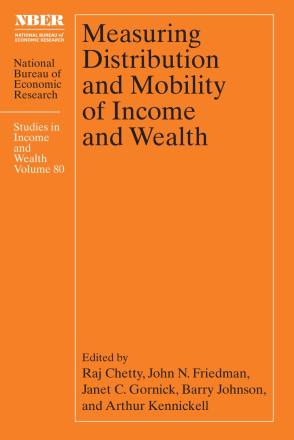Developing Indicators of Inequality and Poverty Consistent with National Accounts

There is a clear interest in the development of measures of economic well-being and inequality that are based upon and consistent with the national accounts framework. Such an approach offers the potential for improved international comparability, greater coherence within countries, and opportunities for enhanced frequency and timeliness of distributional measures. In recent years, there has therefore been a growing body of work seeking to produce distributional national accounts, including that coming out of the OECD-Eurostat Expert Group on Disparities within a National Accounts Framework (EG DNA).
However, in many countries, a key challenge in producing such measures is the coherence between micro and macro sources, with household surveys and national accounts aggregates differing, often substantially, from each other. There are two principal reasons for this. The first is differences in recorded amounts, which may reflect issues with survey coverage, non-response and under-reporting, as well as measurement error in the national accounts. The second is definitional differences, reflecting the different purposes to which the two sources are traditionally put.
This paper builds upon recent research into both sets of reasons, in order to develop new indicators of inequality, poverty and shared prosperity based upon and consistent with national accounts. Data from the United Kingdom is used as an example of how such indicators can be produced for a wider group of countries. The analysis in the paper highlights how such indicators may differ from those based on survey microdata alone and how they may provide new and complementary insights, supporting the timely monitoring of inequalities and inclusive growth at both the national and international levels.
-
-
Copy CitationRichard Tonkin, Sean White, Sofiya Stoyanova, Aly Youssef, Sunny Valentineo Sidhu, and Chris Payne, Measuring Distribution and Mobility of Income and Wealth (University of Chicago Press, 2020), chap. 20, https://www.nber.org/books-and-chapters/measuring-distribution-and-mobility-income-and-wealth/developing-indicators-inequality-and-poverty-consistent-national-accounts.Download Citation


